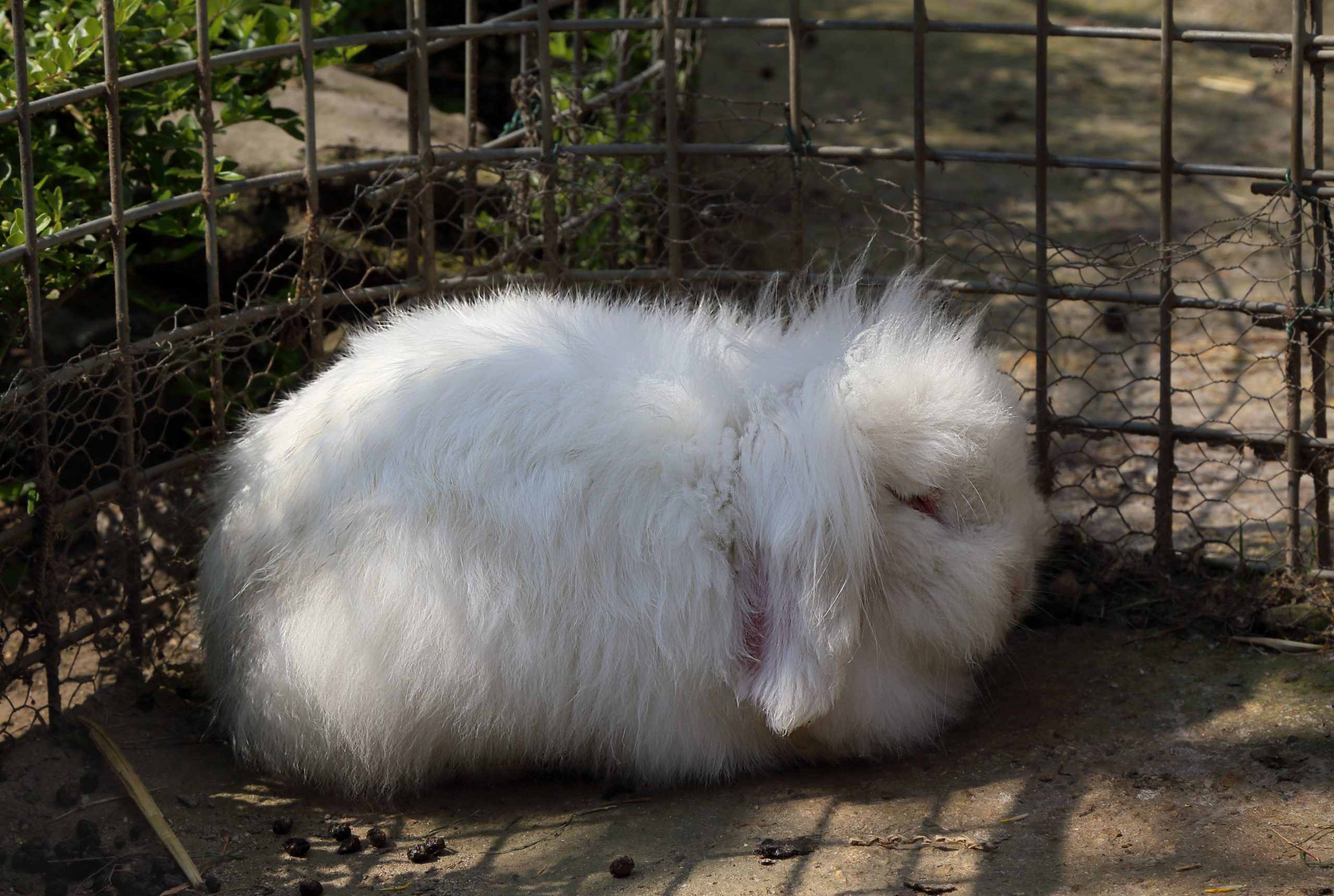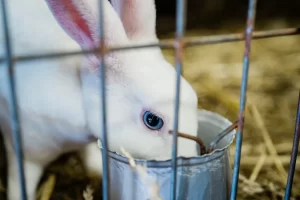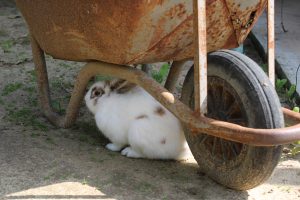Have you ever wondered if Angora rabbits can thrive outdoors? Well, the answer is yes, they can!
In this article, we will explore the ideal outdoor temperature for these fluffy creatures, the shelter requirements they need, and the potential dangers they may face.
We’ll also discuss the importance of proper fencing and the role of diet in their outdoor care.
So, if you’re considering transitioning your Angora rabbit to an outdoor environment, read on for some expert tips and advice.
In This Article
- 1 Key Takeaways
- 2 Ideal Outdoor Temperature for Angora Rabbits
- 3 Shelter Requirements for Outdoor Living
- 4 Potential Dangers and Predators
- 5 Importance of Proper Fencing for Outdoor Enclosures
- 6 The Role of Diet in Outdoor Rabbit Care
- 7 Seasonal Considerations for Outdoor Living
- 8 Grooming Challenges for Outdoor Rabbits
- 9 Tips for Transitioning Angora Rabbits to an Outdoor Environment
- 10 Frequently Asked Questions
- 10.1 Can Angora Rabbits Live in Extreme Cold Weather?
- 10.2 Can Angora Rabbits Live in Extremely Hot Weather?
- 10.3 How Often Should the Outdoor Shelter for Angora Rabbits Be Cleaned?
- 10.4 What Are the Common Predators That Can Pose a Threat to Outdoor Angora Rabbits?
- 10.5 Are There Any Specific Health Risks for Angora Rabbits Living Outdoors That We Should Be Aware Of?
- 11 Conclusion
Key Takeaways
- Angora rabbits thrive in moderate outdoor temperatures of 60 to 70 degrees Fahrenheit.
- Adequate shelter and protection are crucial for Angora rabbits during extreme weather conditions.
- The shelter should be sturdy, insulated, well-ventilated, and provide protection from the elements.
- Proper fencing is important to ensure the security, freedom, and well-being of Angora rabbits in outdoor enclosures.
Ideal Outdoor Temperature for Angora Rabbits
Do you know what the ideal outdoor temperature is for your Angora rabbits? It’s important to understand the optimal conditions for your furry friends to ensure their well-being and happiness.
Angora rabbits thrive in moderate outdoor temperatures, typically ranging from 60 to 70 degrees Fahrenheit. These animals are sensitive to extreme weather conditions, such as excessive heat or cold.
It’s crucial to provide them with adequate shelter and protection during harsh weather. Ensure they’ve access to a warm and dry hutch in colder temperatures and shade in hot weather.
Keep an eye on the weather forecast and make necessary adjustments to maintain a comfortable environment for your Angora rabbits. By taking these precautions, you can ensure their safety and create a conducive outdoor environment for them to live in.
Shelter Requirements for Outdoor Living
Make sure you provide your Angora rabbits with the proper shelter requirements for their outdoor living. Outdoor housing is essential for their well-being and protection from the elements. Here are some important considerations:
- Sturdy and secure enclosure: Ensure that the shelter is made of durable materials and is predator-proof to keep your rabbits safe.
- Adequate insulation: Provide insulation such as straw or hay to help regulate temperature and keep your rabbits warm during colder weather.
- Good ventilation: Proper airflow is crucial to prevent the buildup of moisture and ammonia, which can cause respiratory issues.
- Protection from weather conditions: Install a waterproof roof and provide a covered area where your rabbits can seek shelter from rain, snow, and excessive heat.
By meeting these shelter requirements, you’ll create a comfortable and safe outdoor living space for your Angora rabbits, allowing them to thrive in various weather conditions.
Potential Dangers and Predators
You need to be aware of the potential dangers and predators that can threaten your Angora rabbits when they’re living outside. While it’s possible for Angora rabbits to live outdoors, it’s important to understand the risks involved.
One major danger is the unpredictable weather. Extreme temperatures, heavy rain, and strong winds can all negatively affect your rabbits’ health. It’s crucial to provide them with adequate shelter and protection from the elements.
Additionally, predators such as foxes, raccoons, and birds of prey may see your rabbits as potential prey.
Managing rabbit stress is also essential in outdoor living. Loud noises, sudden movements, and unfamiliar surroundings can all cause stress and anxiety in your rabbits.
Take the necessary precautions to keep them safe and comfortable, ensuring their well-being while they enjoy their outdoor environment.
Importance of Proper Fencing for Outdoor Enclosures
To ensure the safety of your Angora rabbits, it’s crucial to invest in sturdy fencing and regularly inspect it. A well-maintained enclosure can effectively deter predators and prevent potential escapes.
Here are some key points to consider regarding the importance of proper fencing for outdoor enclosures:
- Security: Strong fencing acts as a barrier, keeping predators out and protecting your rabbits from harm.
- Peace of mind: Knowing that your rabbits are safely contained allows you to relax and enjoy their company without constant worry.
- Freedom to explore: A secure outdoor enclosure provides ample space for your Angora rabbits to exercise, play, and engage in natural behaviors.
- Vitamin D boost: Outdoor exercise allows your rabbits to soak up the sun, which is essential for their overall health and well-being.
Regular fencing maintenance is essential to ensure the continued safety and enjoyment of your Angora rabbits. By investing in sturdy fencing and diligently inspecting and maintaining it, you can provide a secure environment that promotes the benefits of outdoor exercise for your beloved pets.
The Role of Diet in Outdoor Rabbit Care
Eating a balanced diet is essential for your outdoor rabbits’ health and well-being. Outdoor rabbit feeding requires careful consideration of their nutritional needs. While rabbits can forage for some of their food in an outdoor environment, it is important to supplement their diet to ensure they receive all the necessary nutrients. Here is a table outlining the key components of a balanced diet for outdoor rabbits:
| Food Group | Examples |
|---|---|
| Hay | Timothy, orchard grass |
| Vegetables | Carrots, kale, bell peppers |
| Leafy Greens | Romaine lettuce, spinach |
| Pellets | High-quality rabbit pellets |
| Fresh Water | Clean and accessible |
| Treats (in moderation) | Apples, strawberries, herbs |
Remember to provide a variety of foods and monitor their intake to prevent obesity. Consult with a veterinarian or a rabbit specialist for specific dietary recommendations tailored to your outdoor rabbits’ needs. By ensuring a well-balanced diet, you can help promote their overall health and happiness.
Seasonal Considerations for Outdoor Living
The article explores the impact of seasonal changes on outdoor living and provides helpful tips for maximizing your enjoyment of the outdoors throughout the year.
When it comes to outdoor rabbit health, weather considerations are crucial. Here are some tips to keep in mind:
- Provide adequate shelter: Ensure your outdoor rabbits have a secure, insulated shelter that protects them from extreme temperatures, wind, and rain.
- Monitor temperature: In hot weather, provide shade and access to fresh water to prevent heatstroke. In cold weather, consider using heat lamps or heated pads to keep your rabbits warm.
- Adjust feeding: Different seasons require different dietary needs. Consult with a veterinarian to ensure your rabbits are getting the right nutrients for each season.
- Exercise and mental stimulation: Even in inclement weather, it’s important to provide your rabbits with opportunities for exercise and mental stimulation. Consider creating an enclosed area or providing toys to keep them active.
Grooming Challenges for Outdoor Rabbits
You should regularly brush your outdoor rabbits to prevent matting and tangles in their fur.
Outdoor grooming can present unique challenges, especially when it comes to weather conditions. It’s important to consider the climate and adjust your grooming routine accordingly.
For example, during hot summer months, rabbits may shed more fur, so brushing them more frequently can help to remove excess fur and prevent overheating.
In colder weather, rabbits may develop thicker coats, which can become matted and tangled if not properly maintained.
Brushing your outdoor rabbits not only helps to keep their fur clean and healthy, but it also allows you to check for any signs of skin issues or parasites.
Tips for Transitioning Angora Rabbits to an Outdoor Environment
Make sure to gradually acclimate your Angora rabbits to the outdoor environment to minimize stress and ensure their safety. Transitioning them from indoor to outdoor living requires careful planning and consideration. Here are some tips to guide you through the process:
- Provide a suitable outdoor enclosure: Set up a spacious and secure area where your Angora rabbits can safely roam and explore.
- Introduce outdoor time gradually: Start by allowing short periods of supervised outdoor time and gradually increase the duration as they become more comfortable.
- Monitor weather conditions: Make sure to choose appropriate weather conditions for outdoor excursions, avoiding extreme temperatures and inclement weather.
- Offer hiding spots and shade: Provide your rabbits with plenty of hiding spots and shaded areas in their outdoor enclosure to protect them from predators and harsh sunlight.
Frequently Asked Questions
Can Angora Rabbits Live in Extreme Cold Weather?
Angora rabbits can live outside in extreme cold weather with proper winter care. Make sure to provide them with a warm shelter, such as an insulated hutch, and extra bedding for insulation.
Can Angora Rabbits Live in Extremely Hot Weather?
Angora rabbits can live outside, but extreme heat can be dangerous. Ensure they have shade, fresh water, and a well-ventilated hutch. Their grooming needs are high due to their long fur and shedding patterns.
How Often Should the Outdoor Shelter for Angora Rabbits Be Cleaned?
To keep your outdoor shelter for Angora rabbits clean and sanitary, it is important to clean it regularly. The frequency of cleaning will depend on factors such as the size of the shelter and the number of rabbits.
What Are the Common Predators That Can Pose a Threat to Outdoor Angora Rabbits?
Common predators such as foxes, raccoons, and birds of prey can pose a threat to outdoor Angora rabbits. Ensuring their safety is crucial by providing secure enclosures and supervision to protect them from potential harm.
Are There Any Specific Health Risks for Angora Rabbits Living Outdoors That We Should Be Aware Of?
Living outdoors can expose angora rabbits to specific health risks. It’s crucial to be aware of potential issues like extreme temperatures, parasites, and diseases. Proper care and regular check-ups can help mitigate these risks.
Conclusion
In conclusion, while angora rabbits can live outside, it’s important to provide them with the proper care and protection.
By ensuring they have a suitable shelter, proper fencing, and a balanced diet, you can create a safe and comfortable environment for them.
For example, Sarah, a rabbit owner, transitioned her angora rabbit, Snowball, to an outdoor enclosure equipped with a cozy shelter and secure fencing.
Snowball thrived in his new environment, enjoying the fresh air and natural surroundings.





